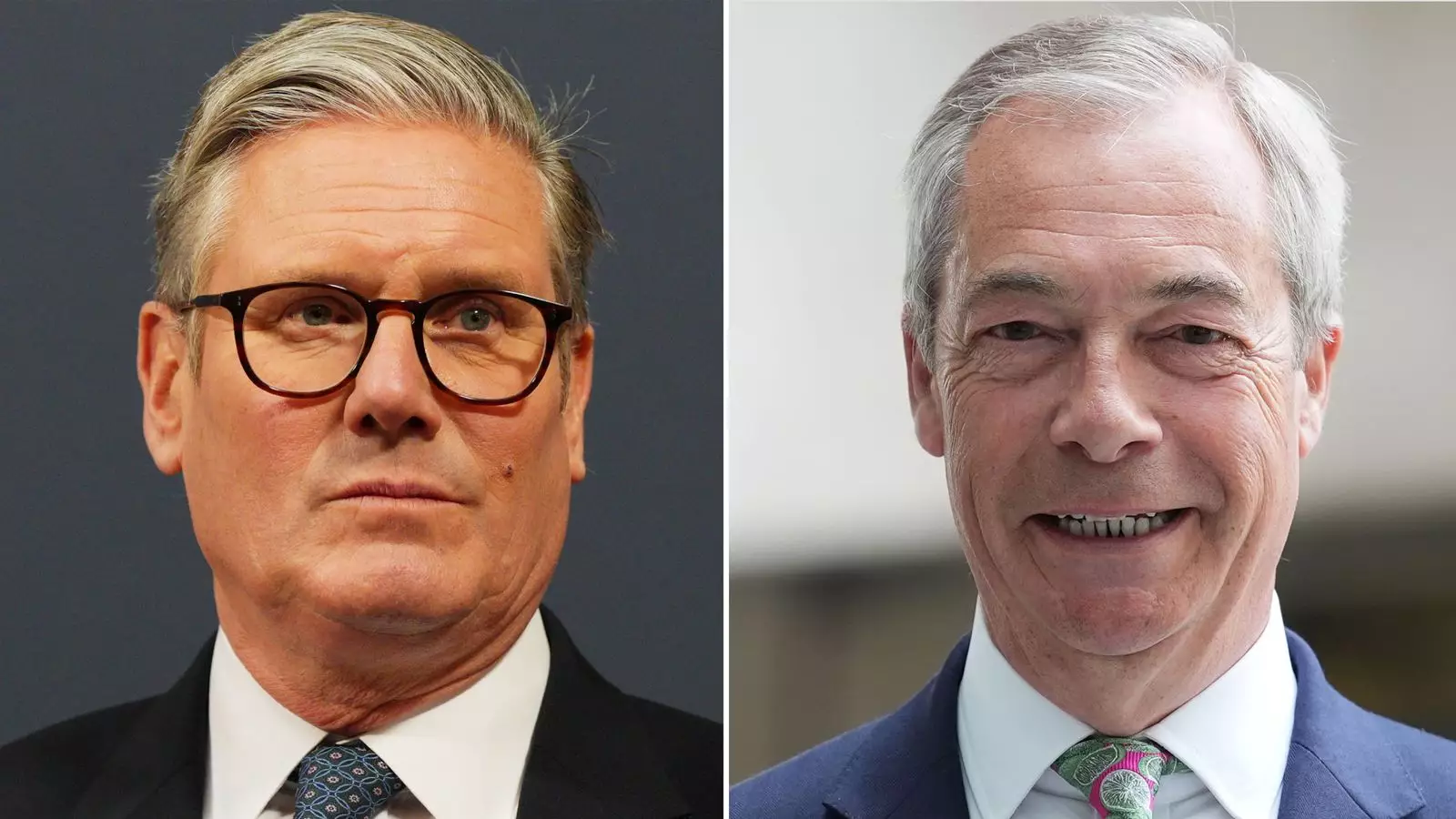Nigel Farage’s recent economic proposals appear enchanting at first glance but upon deeper scrutiny reveal a perilous mirage. The specter of a Liz Truss-style economic collapse looms ominously over these pledges, much to the dismay of financial analysts and, unsurprisingly, the political opposition. Farage’s desire to eliminate cuts to winter fuel payments or abolish the two-child benefit cap may seem like noble gestures aimed at alleviating the struggles of British families. However, they are couched in a fiscal recklessness that could ignite inflationary pressures and wreak havoc on family finances across the nation.
It is impossible to ignore the warnings from Sir Keir Starmer, who has recently cast Farage’s proposals as a “mad experiment.” Drawing parallels to Truss’s disastrous mini-budget, which delivered chaos rather than economic relief, Starmer’s admonitions aren’t simply political rhetoric—they are an urgent call for prudence. The Institute of Fiscal Studies has made a compelling case, suggesting that the goal of raising the personal allowance to £20,000 could demand an astronomical £50 billion to £80 billion annually. This isn’t just guesswork; it’s a staggering amount that would drain national resources, necessitating either deep cuts in other essential services or significant hikes in public debt.
The Mirage of Tax Cuts
Farage argues that his plans can be funded by dismantling net-zero commitments and ceasing the use of hotel accommodations for asylum seekers. Yet this reasoning lacks depth, as it appears to disregard the multi-dimensional nature of public finances. Simply slashing taxpayer-funded initiatives does not equate to economic growth or stability, especially when considering the transformational shift that sustainable policies can galvanize. His approach seems to prioritize short-term political gains over long-sighted economic health, resembling more of an irresponsible gamble than a well-thought-out strategy.
Labour’s growing frustration resonates with those who understand that profit-driven motives in governance can lead to disastrous consequences. Starmer has rightfully questioned the integrity of Farage’s promises. “You cannot simply spend tens of billions on tax cuts without a proper way of paying for it,” he articulated. This argument reverberates through the corridors of public discourse, reminding voters that fiscal irresponsibility carries cultural and economic repercussions that last far beyond a simple election cycle.
The Political Landscape Shift
Despite Labour’s concerns, it is crucial to recognize the shifting political landscape. Recent polls place Reform UK notably ahead, setting off alarm bells for Labour strategists who are under immense pressure amid disappointing local election results. For Farage, this presents both an opportunity and a tightrope walk. His recent parliamentary by-election victory coupled with control of numerous councils and mayoralties underlines a sentiment in certain quarters of Britain that is disillusioned with the established political structures, seeking an alternative direction marked by radical policy shifts.
However, one must remain skeptical of the romanticization of such radicalism. The allure of populist rhetoric can easily morph into rhetoric devoid of genuine solutions. Farage’s potential elevation as prime minister remains a dangerous fantasy for a nation already in the throes of economic uncertainty. The reference made by Dominic Cummings about Farage’s prime ministerial aspirations signals both intrigue and concern; a spotlight on his ascendancy could force voters to reckon with the stark reality that populism often masks deeper systemic issues rather than resolve them.
The Call for Responsible Governance
As Farage pivotally positions himself as a champion for the working class while proposing bold, sweeping tax reforms, it becomes vital for the electorate to discern between genuine welfare and populist deception. The economic policies of a society should not be gambled upon as mere political capital, nor should they offer false solace to struggling families. The conversation must shift towards responsible governance that prioritizes fiscal accountability. The lessons of the past loom large: reckless economic strategies serve only to reinforce the cycles of hardship that many in society wish to escape.
In this landscape, the role of political opposition becomes indispensable. Starmer and Labour have a crucial responsibility not only to oppose these radical, unvetted propositions but to present their own visionary plan for a sustainable, equitable future. Only through a concerted effort can the pitfalls of populism be averted, preserving the stability and integrity of the UK’s economy while fostering genuine progress for its citizens.


Leave a Reply